
On SEEING, A Journal. #535
The SHAPE of the NFL: DEFENSE
July 25, 2023
I am compelled – and propelled – by projects.
During the past 30+ years, I have worked on well over 50 different projects. Some held my interest only a short time and were left, abandoned. It happens: interests, passions, strivings, are often in flux. Many stayed “alive” as my interests grew and drove them to a wide range of experiments and discoveries. About twenty “projects” have been published as books.
One of the major projects currently filling my time and brain is “The Shape of the NFL.” The nature and nurture of an athlete’s body to “fit” a sport’s physical requirements fascinates me. This project is about the significant differences among the body types of professional football players and how those differences play out in each position.
For example: NFL linemen are huge human beings, usually 300 lbs and more, whereas, in significant contrast, defensive backs are lithe like gymnasts and can run almost as fast sideways and backwards as forward.
Contrast, with over 100 lbs difference: Defensive lineman and defensive back.
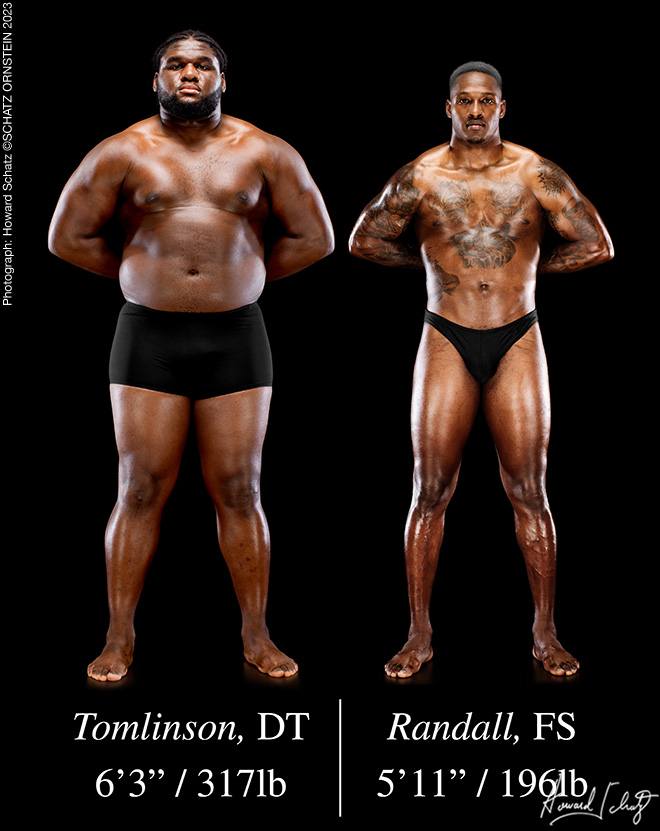
I have been fortunate to enlist the expertise of Linus Schneider (the son of our producer, Bryna Levin), a Senior at Bard College in New York City with an interest in sports journalism and a passion for football. Linus’ expertise on the NFL and its players has been immensely helpful in our quest to identify the very best players.
I asked Linus to describe the positions and functions of players in the NFL.
This is his work on the defense with minimal editing for relative brevity.
DEFENSE
The defensive line is made up of tackles and defensive ends.
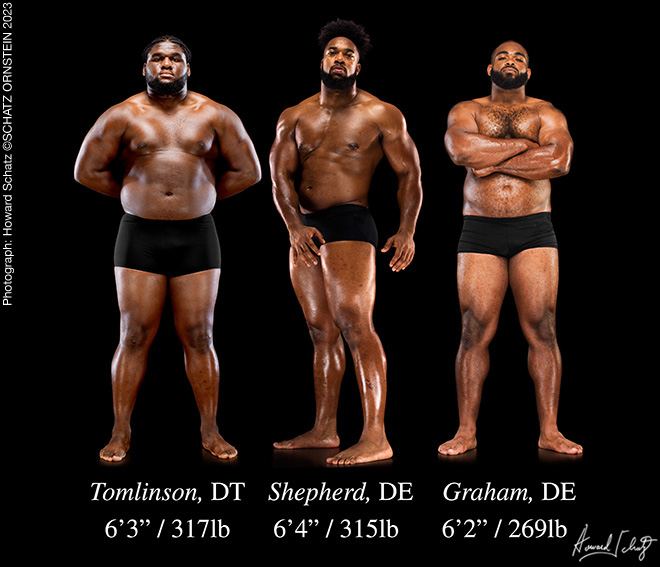
The job of the defensive tackle is to rush straight up the middle at the quarterback, or on running plays to prevent the opposing running back from making it across the line of scrimmage.
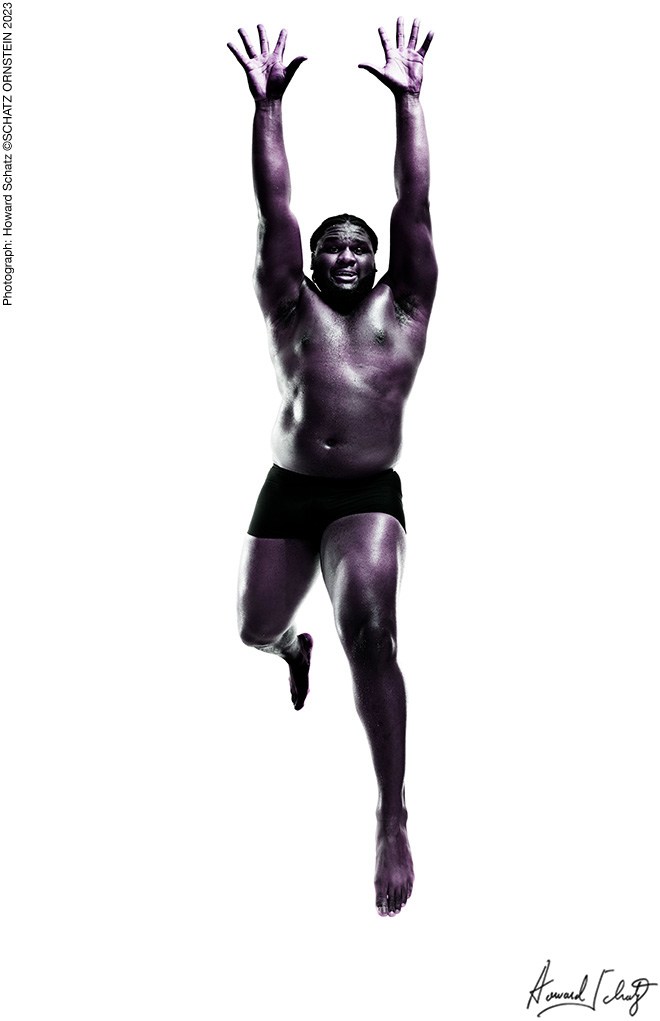
Dalvin Tomlinson, Defensive tackle, charging the quarterback to block a pass.
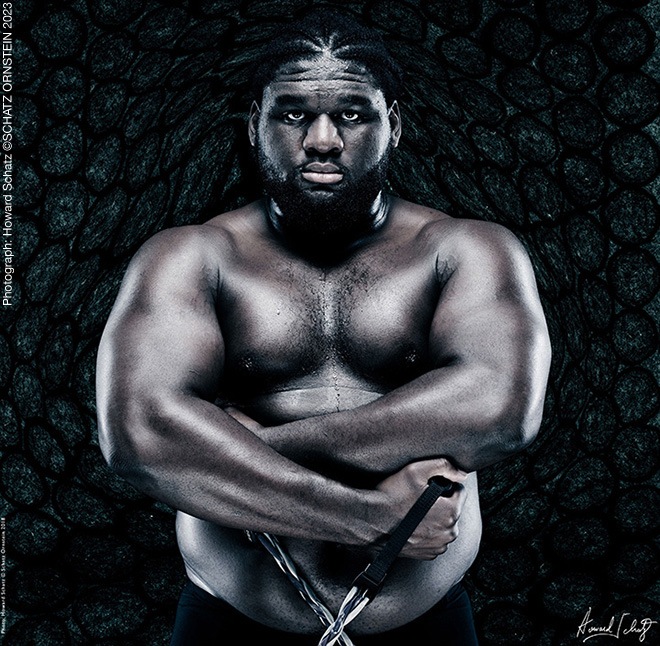
Matched against very large-bodied offensive linemen, defensive tackles are equally immense and strong, while still having the speed and tackling ability to take down crafty ball carriers.
Defensive ends are tasked with containing running plays to the middle of the field or sacking quarterbacks.
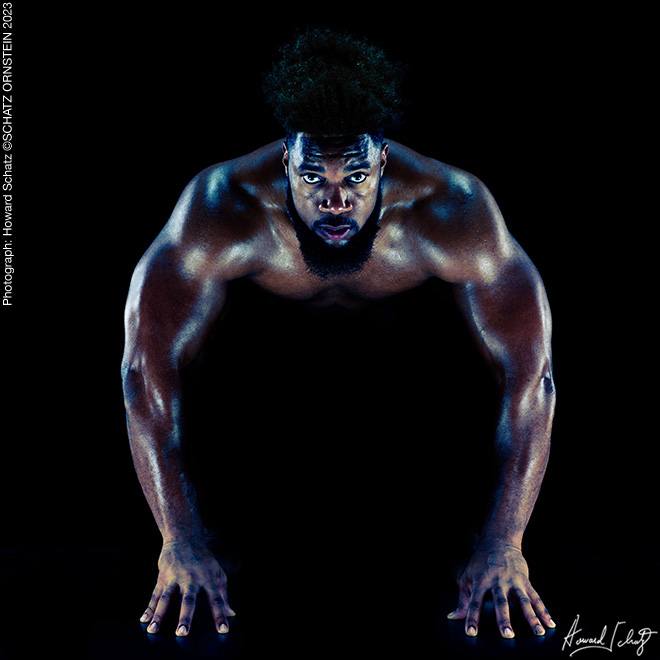
Nathan Shepherd, Defensive end, lining up to charge the quarterback.
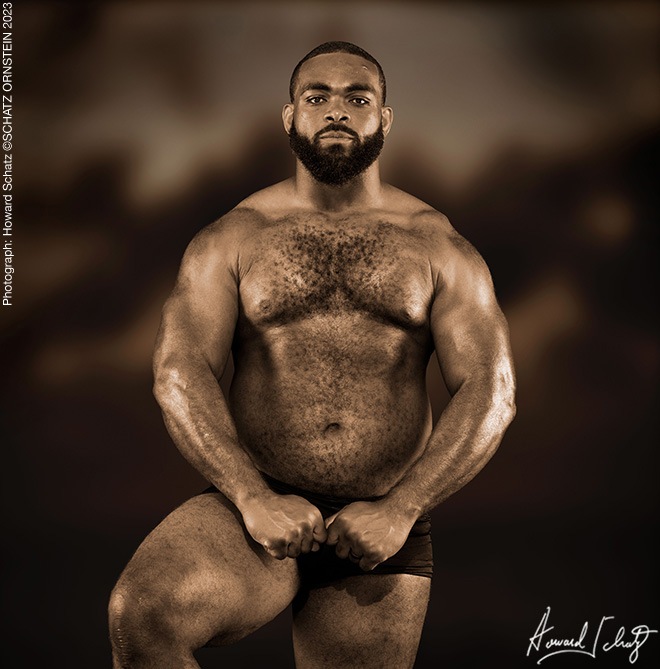
Brandon Graham, Defensive end
Defensive ends apply pressure on the quarterback and use quick bursts of speed combined with elite footwork to break up pass plays and rack up sacks.
Linebackers:
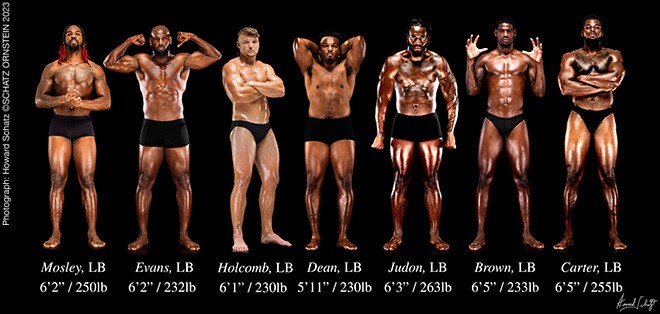
From their positioning five to ten yards behind the defensive line, linebackers work as the intermediary between the defensive line and cornerbacks, tackling running backs, rushing the quarterback or dropping back into coverage to defend the pass.
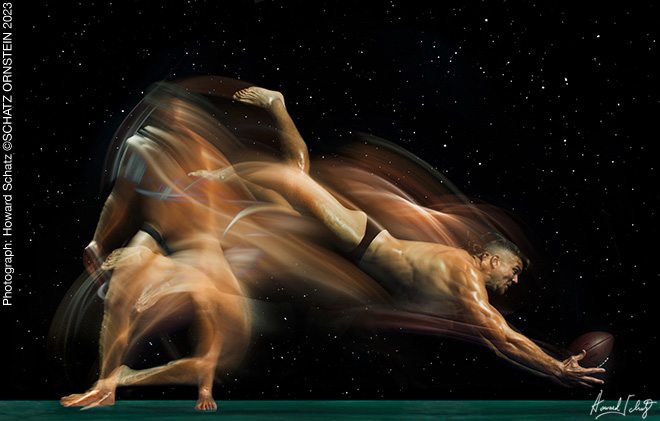
Cole Holcomb, linebacker, diving for a fumbled ball.
To cover the entire field requires immense strength, agility, speed and stamina, and knowledge of the opposing offense.
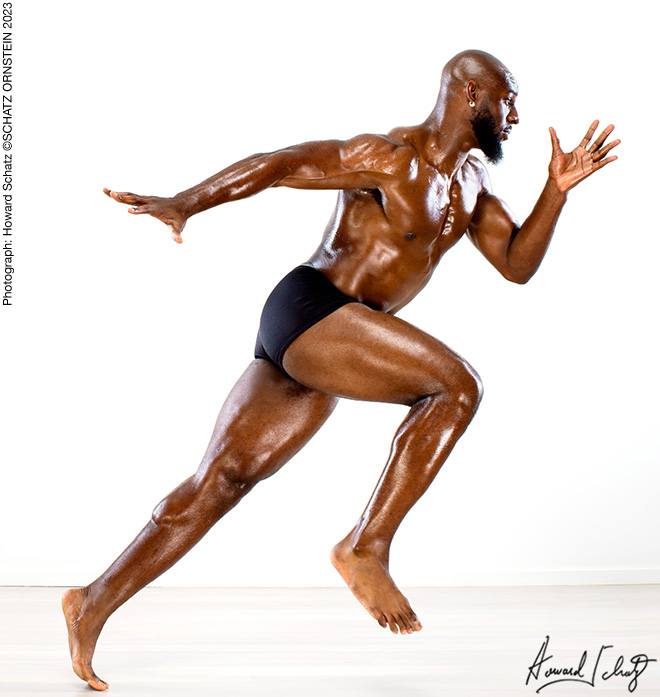
Rashaan Evans, Linebacker
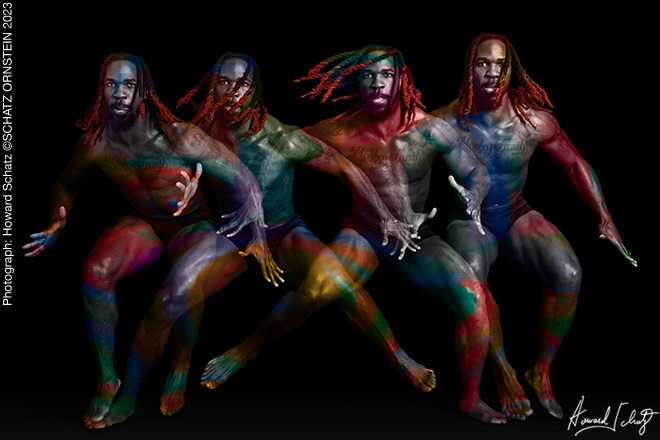
CJ Mosley, Linebacker, covering the line.
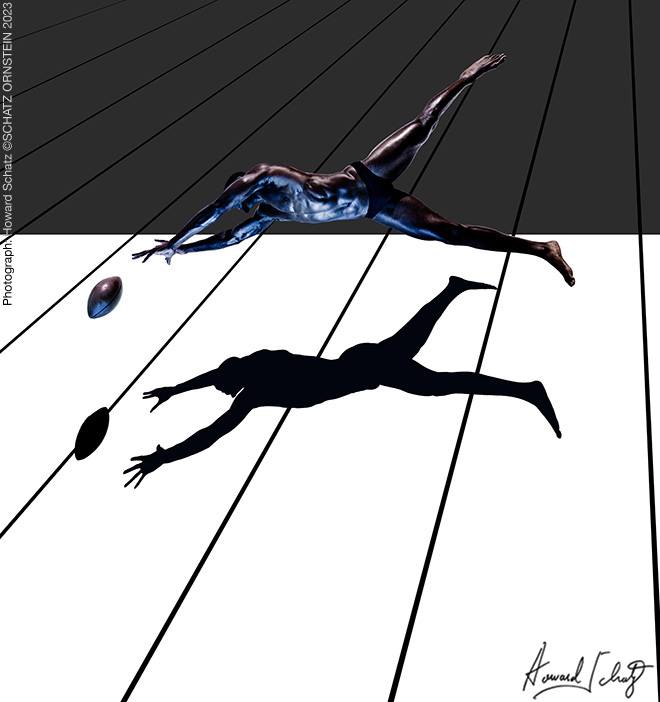
Linebacker, Cameron Brown intercepting a pass.
Defensive Backs (Cornerbacks, Safeties)
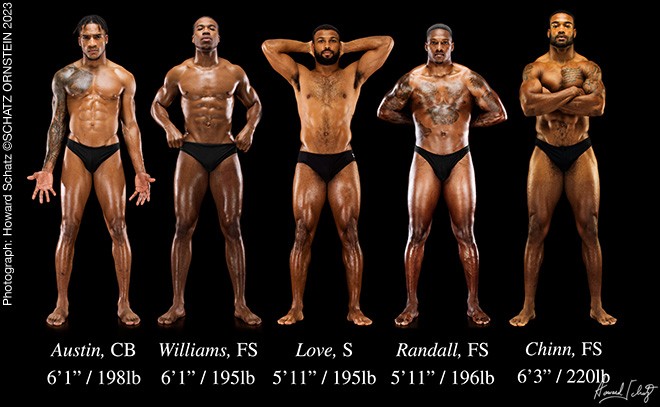
Cornerbacks guard opposing wide receivers, which can be done by either covering a zone of the field or lining up against them one on one.
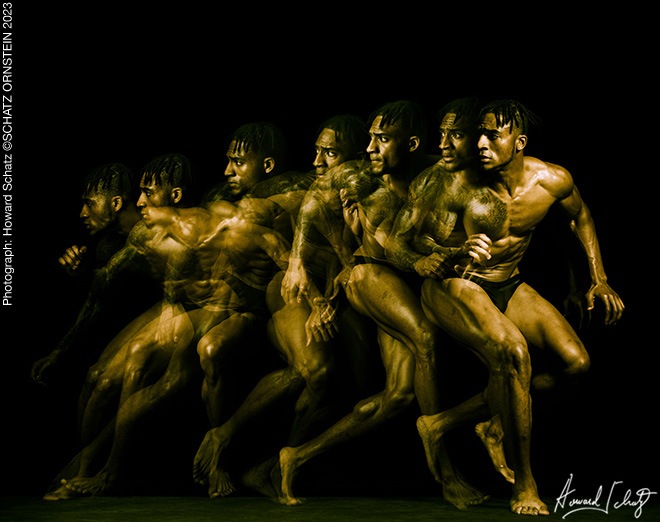
Blessuan Austin, Cornerback, guarding a receiver
Cornerbacks need to tackle receivers when a pass is caught to prevent them from making a big play or even scoring a touchdown.
A cornerback must be quick enough to keep up with speedy wide receivers and be able to leap high enough to block or intercept a pass.
Safeties are the last line of defense. Strong safeties typically play closer to the line of scrimmage and assist in run or short pass plays, while a free safety is in deeper coverage.
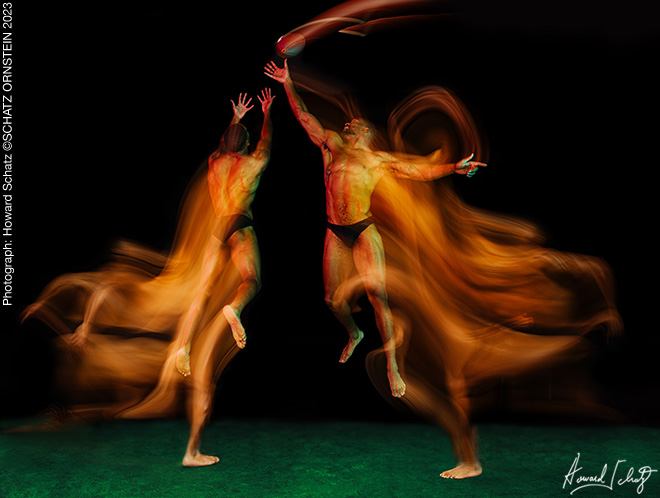
Jeremy Chinn, Safety, preventing a receiver from catching a pass
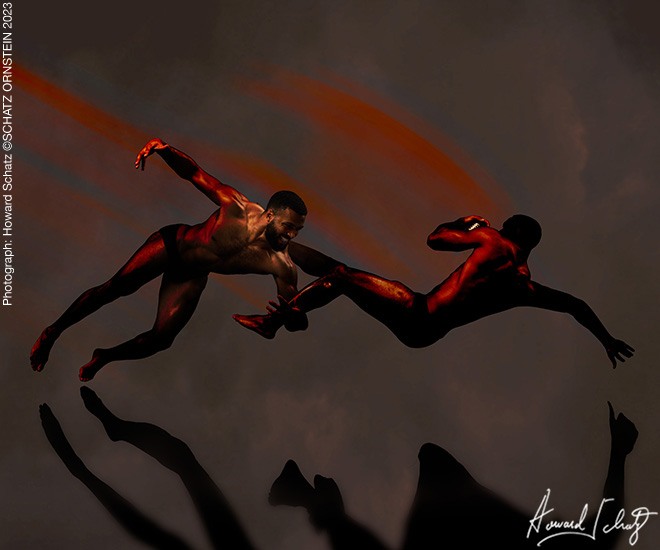
Julian Love, Safety, tackling a receiver
Free safeties are the farthest players back in the defense, so any runner or receiver who gets past them will often score a touchdown. They need to be fast, and powerful tacklers, while still being able to read plays on the fly.
Contrast between defensive back (Safety) and Linebacker
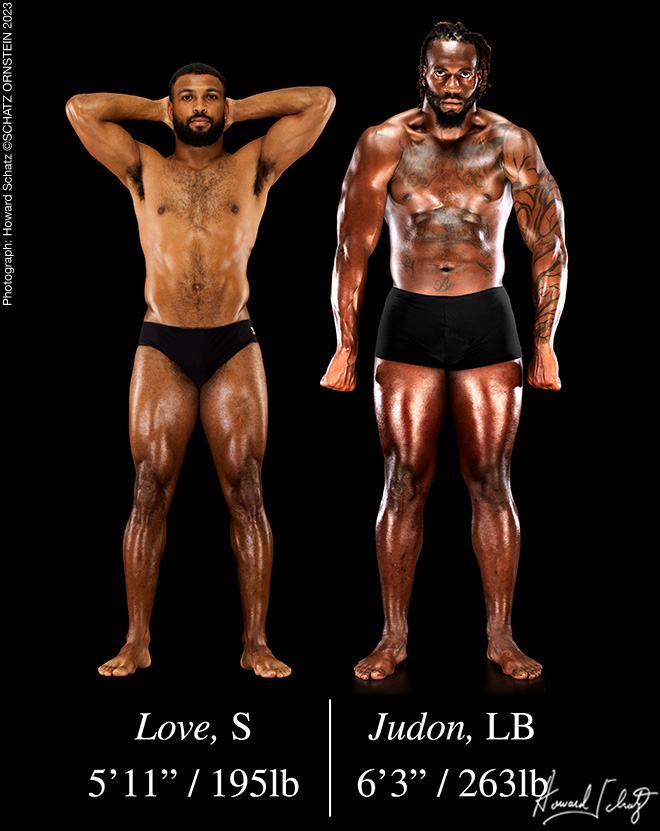
DEFENSE

The success of any project depends on many factors. One that is absolutely essential is access to the subjects, which often requires significant effort and diplomacy. Of all the projects I have done, access to top players in the National Football League has been the most challenging, by far.
Our hard-working and determined producer, Bryna Levin, has been unstinting in her effort to encourage and inspire top NFL players to participate in this project for inclusion in a future book and possible museum exhibition. In addition, images from the shoots are shared with each player for their personal use and social media.
